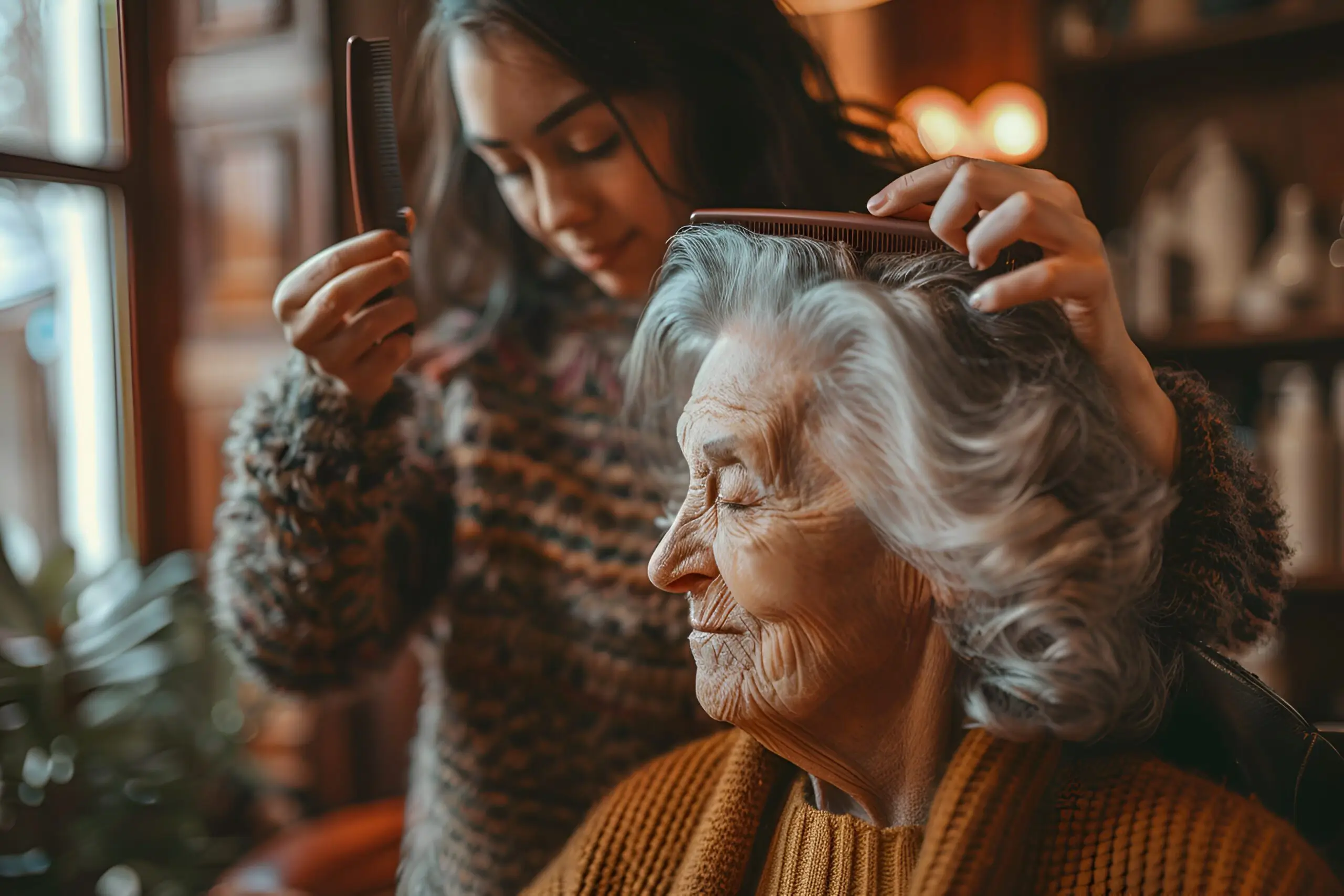Grooming Tips for Caregivers: Elderly Care & Senior Hygiene Guide
Grooming Tips for Caregivers: Elderly Care & Senior Hygiene Guide

Maintain a Regular Senior Grooming Routine
Establishing consistent grooming tips for caregivers starts with creating a predictable routine. Regular grooming schedules are especially important for hygiene tips for dementia patients, as familiar patterns provide comfort and reduce anxiety. Use your loved one’s preferred toiletries whenever possible, but prioritize safety by choosing simple, user-friendly products. For example, cardboard nail files are gentler and less intimidating than metal clippers when learning how to assist seniors with grooming.
Consider the timing of grooming activities based on your loved one’s energy levels and preferences. Some seniors feel more alert in the morning, while others prefer evening routines. The key to successful elderly grooming care is flexibility while maintaining consistency in the overall schedule.
Hair Care for Elderly Loved Ones
Most people find regular hair washing refreshing and confidence-boosting, making haircare tips for elderly loved ones an essential part of any grooming routine. However, some individuals may find frequent washing stressful or uncomfortable. When developing your approach to hair care, weigh the benefits of clean hair against potential anxiety or resistance.
Regular visits to a hairdresser or barber can be invaluable for maintaining a senior grooming routine. Professional care reduces the frequency of home hair washing and provides social interaction. If mobility is limited, consider mobile hairdressing services that visit your home. When washing hair yourself, use a hand-held shower hose and tear-free shampoo. Hair wash shields prevent water from running onto the face, or try no-rinse shampoos as part of your best grooming products for elderly care toolkit.
Safe Hair Removal
When helping seniors with grooming that involves hair removal, safety should be your top priority. Electric razors are the safest option for safe shaving for elderly men, reducing the risk of cuts and nicks that can be slow to heal in older adults. For precision work in hard-to-reach areas like the nose and ears, gentle plucking with clean tweezers typically works best and is easier to control than scissors or other tools.
Nail and Foot Care for Seniors
Regular nail and foot care for seniors prevents accidental scratching and maintains overall hygiene. Trim fingernails and toenails consistently, being careful not to cut too short or too close to the skin. During foot care, watch for signs of bunions, corns, or severe cracking that may require professional attention.
Proper nail care is particularly important for individuals with diabetes or circulation issues, as minor injuries can lead to serious complications. If you’re unsure about safely trimming nails, consider consulting a podiatrist or healthcare provider for guidance on the best techniques for your specific situation.
Makeup and Personal Care Preferences
Makeup for senior women might seem unnecessary, but small touches can significantly impact self-esteem and emotional well-being. If your loved one previously wore makeup regularly, even simple application of foundation and lipstick can help them feel more like themselves. This aspect of personal hygiene for seniors is about honoring their preferences and maintaining their sense of identity.
The key to successful elderly grooming care is respecting your loved one’s personal preferences and habits while ensuring their safety and comfort. Some individuals may prefer minimal grooming, while others feel better with a full routine. Work together to find a balance that maintains their dignity while meeting their care needs.



